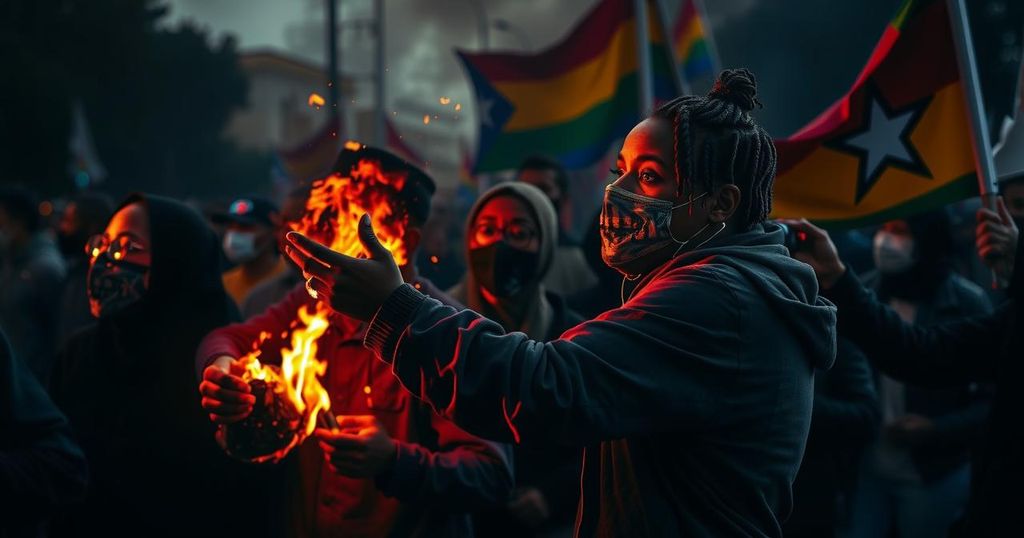Social Media Restrictions in Mozambique Amid Election Protests

Social media access in Mozambique has been restricted amid a nationwide strike in response to disputed election results from October 9. In the aftermath of violence surrounding the election, there have been reports of fatalities and injuries, prompting government warnings against protests. This situation highlights concerns regarding civil liberties in the country.
In Mozambique, access to social media platforms has been severely restricted amidst a nationwide strike organized in response to contested election results. The disturbances began on Thursday, coinciding with escalating tensions in light of the outcome of the October 9 general elections. Notably, the global internet monitoring organization NetBlocks reported that residents have been unable to utilize social media services, including Facebook, WhatsApp, and Instagram, since the early hours of Thursday. This indicates a significant governmental effort to suppress communication during a period of civil unrest. In the aftermath of the election results announcement, which declared the ruling Frelimo party’s candidate, Daniel Chapo, victorious with 71% of the votes, protests erupted throughout the country. His rival, Venancio Mondlane, received 20% of the votes and has called for public demonstrations challenging the election results. This situation is underscored by reports from Human Rights Watch, which stated that at least 11 individuals lost their lives due to the violence that followed the elections, with more than 50 injured during the incidents occurring on October 24 and 25. Furthermore, prior to the anticipated protests, the authorities issued warnings against any actions deemed as “sabotage.” This development adds to the climate of fear and disruption, as many citizens found themselves without the means to communicate or organize protest actions effectively. The backdrop of these events marks a troubling scenario for civil liberties in Mozambique, given the state-imposed internet restrictions that have now become a tool for controlling dissent within the region.
The political climate in Mozambique has been tense due to the recent general elections that took place on October 9, during which disputes regarding the results emerged nearly immediately. Approximately 17 million registered voters were called to the polls to elect a new president and other legislative representatives. The subsequent declaration of the election results by the electoral commission has been contested, resulting in violent demonstrations and further governmental actions to limit communication among the populace. The actions taken by the Mozambican authorities reflect broader concerns regarding the state of human rights and freedom of expression in the country, particularly in the aftermath of politically motivated unrest.
In summary, the current unrest in Mozambique highlights the intersection of political dissatisfaction and governmental control over social media platforms. The government’s measures to restrict communication capabilities aim to quell dissent amid a backdrop of disputed election outcomes, which have tragically resulted in loss of life and injuries during subsequent protests. The ongoing situation poses significant questions about political freedom and human rights in the nation.
Original Source: www.aa.com.tr







